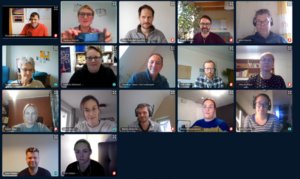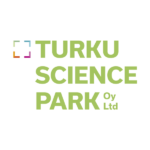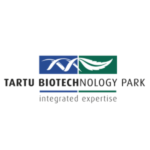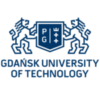The second workshop of the ScanBalt Bioeconomy working group focused on Circular Economy
 After the kickoff in October 2020, the ScanBalt Bioeconomy Working Group met for another online workshop on 3 December 2020. The workshop focused on the topic of Circular Economy.
After the kickoff in October 2020, the ScanBalt Bioeconomy Working Group met for another online workshop on 3 December 2020. The workshop focused on the topic of Circular Economy.
An overview of the topic was given by circular economy expert and innovation strategist Christian Rudolph, presenting the Berlin-based company co:dify (https://codify.in/). This was followed by the presentation of specific projects:
Christian Theel from the University of Greifswald – who is, together with Gudrun Mernitz, organizer of the ScanBalt Bioeconomy Working Group – introduced Plant3, a Bioeconomy Cluster in Northeast-Germany (https://biooekonomie.uni-greifswald.de/). The vision of Plant3 is a knowledge- and innovation-based model region for bioeconomy as best practice for the sustainable transformation of rural areas. This will be done by creating new value chains by developing sustainable biobased products, processes and services in the scope of land, sea and peatlands.
An impressive example of implemented circularity is the project Kalundborg Symbiosis in Denmark (http://www.symbiosis.dk/en/). Starting in the early sixties, Kalundborg Symbiosis has grown organic over more than five decades. In this local partnership, the partners, including world market leaders such as Novozymes and Novo Nordisk, provide, share and reuse resources to create a shared value. The vision of Kalundborg Symbiosis is to become the world’s leading industrial symbiosis with a circular approach to production.
As the working group wants to cooperate closely with existing initiatives, Riikka Kumpulainen (JAMK University, Finland) was invited to present the Biobord platform (Biobord.eu). Biobord is an EU-funded online platform for bioeconomy innovation, knowledge sharing, discussion, and networking. The aim is to bring bioeconomy developers together around the Baltic Sea Region to solve joint problems. An integrated forum offers services such as international matchmaking, knowledge sharing, discussion and innovating. For the ScanBalt Bioeconomy group, it could be a great way to combine the two networks and to provide a simple and effective co-working platform.
At the same time, Frank Graage (Steinbeis Team Nordost: http://www.steinbeis-nordost.de/) and Alexander Schwock (WITENO GmbH: https://www.witeno.de/en/witeno/) presented funding opportunities for topics of the Circular Economy on Baltic Sea Region and EU level in the upcoming funding period. The joint application of projects is a central goal of the members of the working group.
To set the framework for the working group for the next months the participants responded to respective questions via Tweedback. It became obvious that circular BIOeconomy is the central topic for most of the participants. In this respect, circularity will determine the cooperation within the working group. Networking, best practice exchange, common projects, links between different bioeconomy working groups/networks to tackle common problems were mentioned as major interests for participation in the working group.
The next workshop of the working group will take place on 19 March 2021 from 10-12 am (CET). This time, the focus will be on circularity in the textile industry. Among other things, we want to shed light on which best practices already exist on the topic of circular (bio)economy in the textile industry and what we can learn from them for the development of corresponding business models. We are convinced that product development is a central aspect of sustainable, successful business models and will place a special focus here. Agenda and further information will be available very soon on the ScanBalt Webpage https://scanbalt.org/bioeconomy/.












